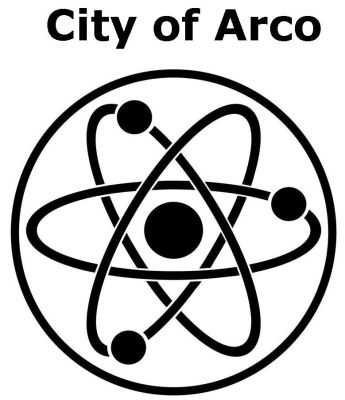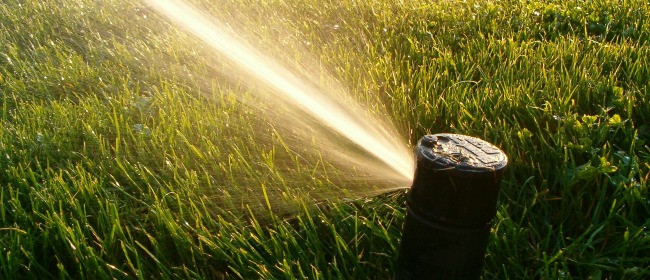Water Utilities
At the City of Arco, we are committed to providing safe, high quality water services to our community, while maintaining a standard of excellence in customer service and environmental conservation. Feel free to call our office if you have any questions or need assistance with any matters related to the water we provide! 208-527-8294
Lead infromation
Lead is a toxic metal that was commonly used in consumer products such as gasoline and paint before it was discovered that it is harmful to human health. We now know that, if inhaled or swallowed, lead can build up in the body over time and cause serious damage to the brain, kidneys, nervous system, and red blood cells.
The problem of airborne lead exposure has been largely resolved in the United States as a result of the phase-out of leaded gasoline. Today, exposure is more likely to come from lead-contaminated soil or dust and drinking water through the corrosion of plumbing.
Impacts of Lead Exposure – Exposure to lead is most dangerous for young children under the age of six and infants. A dose of lead that would have little effect on an adult could have a big effect on a small body. The primary sources of lead exposure for most children are deteriorating lead-based paint, lead-contaminated dust, and lead-contaminated residential soil. On average, it is estimated that lead in drinking water accounts for 10% to 20% of total lead exposure in young children. Lead exposure in drinking water may be as high as 60% in infants whose diet consists mostly of liquids made with lead-contaminated water.
Lead and Drinking Water – Certain drinking water plumbing, older fixtures, or solder may contain lead. The most common cause of lead in drinking water is corrosion, a reaction between water and lead pipes or solder. Lead may be present in your drinking water if your home has faucets or brass fittings that contain lead, or if your home or water system (service line and internal plumbing) has lead or copper pipes with solder that contains lead. Lead can be present in school drinking water as well, particularly when water sits overnight, over a weekend, or during a vacation. The lead concentration depends on the plumbing materials and the corrosivity of the water.
On July 29, 2020, the U.S. Environmental Protection Agency (EPA) issued the final regulation “Use of Lead-Free Pipes, Fittings, Fixtures, Solder, and Flux for Drinking Water.” In the final rule, EPA makes conforming changes to existing regulations based on the Reduction of Lead in Drinking Water Act (RLDWA) and the Community Fire Safety Act enacted by Congress. The final rule also requires that manufacturers or importers certify that their products meet the requirements using a consistent verification process within 3 years of the final rule publication date in the Federal Register. As a result, this new rule will reduce lead in drinking water and assure that states, manufacturers, inspectors and consumers have a common understanding of “Lead-Free” plumbing.
How to Reduce Exposure to Lead in Drinking Water
Flush pipes before drinking – The longer water stands idle in plumbing, the more lead it may absorb. Do not drink or cook with water that has been idle in your plumbing for more than 6 hours (e.g., overnight or during the workday). Flush your pipes by running the cold water for at least 30 to 60 seconds. To prevent wasting flushed water, use it for watering plants or washing dishes. Boiling water concentrates lead and does not remove it.
Consume cold water only – Hot water is likely to contain higher levels of lead. If you need hot water for cooking or drinking, use cold water and heat it. Do not use hot tap water to make baby formula.
Have the water tested – Because you cannot see, taste, or smell lead dissolved in water, the only way to ensure your household water does not contain harmful quantities of lead is to have it tested by a laboratory. Closely follow sampling instructions outlined by the laboratory to avoid tainting results. Contact your public water system or health department for information and assistance.
Some treatment devices can reduce the amount of lead in drinking water. All treatment devices should be certified by the National Sanitation Foundation.
Lead and Copper Site Selection – The Lead and Copper Rule (LCR) requires all community and non-transient, non-community public water systems to sample at locations that may be particularly susceptible to high lead or copper concentrations per the “Rules for Public Drinking Water Systems” (IDAPA 58.01.08.350.07).
The LCR establishes a tiering system for prioritizing sampling sites based on a materials evaluation. Most existing water systems conducted this survey in 1992 but would benefit from conducting the survey again as materials may have changed. New water system owners and operators must perform a materials evaluation before lead and copper tap monitoring. The Lead and Copper Sample Site Selection form defines the monitoring requirements and tiering system for prioritizing sampling sites and includes a site selection certification form for submittal to DEQ.
Proposed Revisions to the Lead and Copper Rule – In 2019, EPA published proposed revisions to the Lead and Copper Rule that include a suite of actions to reduce lead exposure in drinking water. The proposed rule will identify the most at-risk communities and ensure systems have plans in place to rapidly respond by taking actions to reduce elevated levels of lead in drinking water.
The agency’s proposal takes a proactive approach to improving the current rule, including testing, treatment, and informing the public about the levels and risks of lead in drinking water.
This approach focuses on six key areas:
- Identifying the areas most impacted.
- Strengthening drinking water treatment requirements.
- Replacing lead service lines.
- Increasing sampling reliability.
- Improving risk communication.
- Protecting children in schools and childcare facilities.
Learn more about proposed visions for the LCR at https://www.epa.gov/ground-water-and-drinking-water/proposed-revisions-lead-and-copper-rule.
Frequently Asked Questions
Water is not metered.
At the present time the City of Arco does not meter read water useage. Please follow the ordinance on water usage. If your address is an even number water on even days (2nd, 4th, 6th ect). If your address is an odd number water on odd days (1st, 3rd, 5th ect.) If a month has 31 days then no one waters on that day.
My bill is past due can I get an extension?
Please contact our office (208-527-8294) and a one-time extension will be extended to you for extenuating circumstances. If your bill falls behind over $200 we will give you notice of a shut off. If this happens there is a $50 reconnect fee.
What do I do if I am experiencing low pressure?
Check your meter and the surrounding area for possible leaks. Next, call our office and report low pressure for your area.
Why do I have a previous balance when I know I sent in my payment?
We may have received it after the due date or we may not have received it at all. Call our office and we will help you solve the problem.
Why is my water discolored?
A repair could have been completed recently allowing air to enter the line, causing the milky look.



